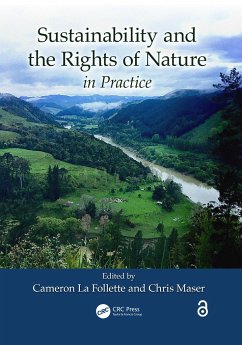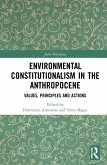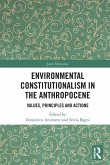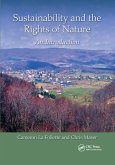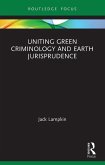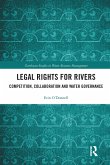Sustainability and the Rights of Nature in Practice is the much-needed complementary volume to Sustainability and the Rights of Nature: An Introduction (CRC Press, May 2017). The first book laid out the international precursors for the Rights of Nature doctrine and described the changes required to create a Rights of Nature framework that supports Nature in a sustainable relationship rather than as an exploited resource. This follow-up work provides practitioners from diverse cultures around the world an opportunity to describe their own projects, successes, and challenges in moving toward a legal personhood for Nature. It includes contributions from Nepal, New Zealand, Canadian Native American cultures, Kiribati, the United States and Scotland, amongst others, by practitioners working on projects that can be integrated into a Rights of Nature framework. The authors also tackle required changes to shift the paradigm, such as thinking of Nature in a sacred manner, reorienting Nature's rights and human rights, the conceptualization of restoration, and the removal of large-scale energy infrastructure.
Curated by experts in the field, this expansive collection of papers will prove invaluable to a wide array of policymakers and administrators, environmental advocates and conservation groups, tribal land managers, and communities seeking to create or maintain a sustainable relationship with Nature.
Features:
Addresses existing projects that are successfully implementing a Rights of Nature legal framework, including the difference it makes in practice
Presents the voices of practitioners not often recognized who are working in innovative ways towards sustainability and the need to grant a voice to Nature in human decision-making
Explores new ideas from the insights of a diverse range of cultures on how to grant legal personhood to Nature, restrain damaging human activity, create true sustainability, and glimpse how a Rights of Nature paradigm can work in different societies
Details the potential pitfalls to Rights of Nature governance and land use decisions from people doing the work, as well as their solutions
Discusses the basic human needs for shelter, food, and community in entirely new ways: in relationship with Nature, rather than in conquest of it
Chapter 6 of this book is freely available as a downloadable Open Access PDF under a Creative Commons Attribution-Non Commercial-No Derivatives 4.0 license available at http://www.taylorfrancis.com/books/e/9780429505959
Curated by experts in the field, this expansive collection of papers will prove invaluable to a wide array of policymakers and administrators, environmental advocates and conservation groups, tribal land managers, and communities seeking to create or maintain a sustainable relationship with Nature.
Features:
Addresses existing projects that are successfully implementing a Rights of Nature legal framework, including the difference it makes in practice
Presents the voices of practitioners not often recognized who are working in innovative ways towards sustainability and the need to grant a voice to Nature in human decision-making
Explores new ideas from the insights of a diverse range of cultures on how to grant legal personhood to Nature, restrain damaging human activity, create true sustainability, and glimpse how a Rights of Nature paradigm can work in different societies
Details the potential pitfalls to Rights of Nature governance and land use decisions from people doing the work, as well as their solutions
Discusses the basic human needs for shelter, food, and community in entirely new ways: in relationship with Nature, rather than in conquest of it
Chapter 6 of this book is freely available as a downloadable Open Access PDF under a Creative Commons Attribution-Non Commercial-No Derivatives 4.0 license available at http://www.taylorfrancis.com/books/e/9780429505959

